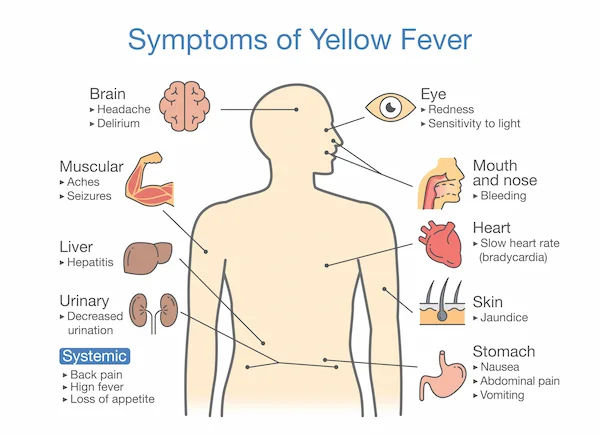Types of Radiation Therapy Explained
Explore the different types of radiation therapy used to treat cancer, including external beam and internal radiation. Learn how each type works, what to expect during treatment, and tips to manage side effects.


Introduction
Radiation therapy is a common and effective treatment for many types of cancer. It uses high-energy radiation to destroy cancer cells or slow their growth. If you or a loved one has been recommended for radiation therapy, it’s natural to have questions. This article explains the different types of radiation therapy, how they work, and what to expect during treatment.
What Is Radiation Therapy?
Radiation therapy, also called radiotherapy is a cancer treatment that uses controlled doses of radiation to target and kill cancer cells. It can be used alone or in combination with surgery, chemotherapy, or immunotherapy. The goal is to shrink tumors, relieve symptoms, and prevent cancer from spreading.
The good news is that modern radiation therapy is precise, minimizing damage to healthy tissues. Your doctor will choose the best type based on your cancer type, stage, and overall health.
Consult a Top Cancer Specialist for the best advice
Types of Radiation Therapy
There are two main types of radiation therapy:
- External Beam Radiation Therapy (EBRT) – Delivers radiation from outside the body.
- Internal Radiation Therapy (Brachytherapy) – Places radioactive material inside or near the tumor.
Let’s explore each type in detail.
1. External Beam Radiation Therapy (EBRT)
This is the most common type, where a machine directs radiation beams at the cancer site. Different techniques are used depending on the tumor’s location and size.
Common Types of EBRT:
- 3D Conformal Radiation Therapy (3D-CRT) – Uses imaging scans to shape radiation beams to match the tumor’s exact size and shape, reducing harm to nearby healthy tissues.
- Intensity-Modulated Radiation Therapy (IMRT) – A more advanced form of 3D-CRT that adjusts the radiation intensity for better precision.
- Image-Guided Radiation Therapy (IGRT) – Uses real-time imaging (like X-rays or CT scans) before each session to ensure accurate targeting, especially for moving tumors (e.g., lung or prostate cancer).
- Stereotactic Radiosurgery (SRS) & Stereotactic Body Radiation Therapy (SBRT) – Delivers high doses of radiation in fewer sessions (usually 1-5) with extreme precision. SRS is used for brain tumors, while SBRT treats cancers in the lungs, liver, or spine.
- Proton Therapy – Uses protons (instead of X-rays) to target tumors with minimal damage to surrounding tissues. It’s often used for paediatric cancers and tumors near critical organs.
2. Internal Radiation Therapy (Brachytherapy)
In this method, a radioactive source is placed inside or very close to the tumor. It allows a high dose of radiation to be delivered directly to the cancer while sparing healthy tissues.
Types of Brachytherapy:
- Low-Dose Rate (LDR) Brachytherapy – Small radioactive seeds are implanted permanently (e.g., prostate cancer) or temporarily (e.g., cervical cancer). They release radiation slowly over weeks or months.
- High-Dose Rate (HDR) Brachytherapy – A stronger radioactive source is placed temporarily (for minutes) and then removed. This is commonly used for breast, cervical, and uterine cancers.
How Does Radiation Therapy Work?
Radiation damages the DNA of cancer cells, preventing them from multiplying. Healthy cells can repair themselves, but cancer cells cannot, leading to their destruction.
What to Expect During Treatment?
Learn what to expect during treatment, including the step-by-step process, possible side effects, and tips to stay comfortable and informed throughout your recovery journey.
- Planning (Simulation) – Your medical team will perform scans (CT/MRI) to map the treatment area. You may get small marks on your skin to guide radiation beams.
- Treatment Sessions – EBRT is usually given 5 days a week for several weeks. Each session lasts 10-30 minutes and is painless. Brachytherapy may require a short hospital stay.
- Side Effects – These vary depending on the treatment area but may include fatigue, skin redness, or nausea. Most side effects are temporary.
Tips for Managing Side Effects
Discover helpful tips for managing side effects during treatment.
- Skin Care – Use mild soap, avoid sun exposure, and don’t rub the treated area.
- Rest & Hydration – Fatigue is common, so take short naps and drink plenty of water.
- Healthy Diet – Eat balanced meals to help your body recover.
- Follow-Up Care – Regular check-ups help monitor progress and manage any long-term effects.
When to Seek Help?
If you experience severe pain, unexplained weight loss, or persistent side effects, consult your doctor immediately.
Conclusion
Radiation therapy can be a crucial step in your cancer journey. Understanding your options helps you make informed decisions and feel more in control.
Consult a Top Cancer Specialist for the best advice
Consult a Top Cancer Specialist for the best advice

Dr. Rakesh Rattan Jalali
Radiation Specialist Oncologist
28 Years • MD - Radiation Oncology
Chennai
Apollo Proton Cancer Center, Chennai
(25+ Patients)

Dr. Praveen Kumar Garg
Surgical Oncologist
26 Years • MBBS, M.S.(Gen.Surg.), M.Ch.(OncoSurg.)
Delhi
Apollo Hospitals Indraprastha, Delhi
(50+ Patients)

Dr. Naman Utreja
Radiation Specialist Oncologist
11 Years • MBBS, MD Radiotherapy
Noida
Shanvi Heart and Cancer Care Clinic, Noida
(50+ Patients)

Dr. Rupam Manna
Radiation Specialist Oncologist
4 Years • MBBS MD(RADIO THERAPY)
Barasat
Diab-Eat-Ease, Barasat

Dr Ankit Jain
Medical Oncologist
20 Years • MBBS, (MAMC Delhi), MRCP Oncology (London), MRCP Medicine (London), MSC Oncology(UK) CCT(UK)
Delhi
Apollo Hospitals Indraprastha, Delhi
(25+ Patients)
Consult a Top Cancer Specialist for the best advice

Dr. Rakesh Rattan Jalali
Radiation Specialist Oncologist
28 Years • MD - Radiation Oncology
Chennai
Apollo Proton Cancer Center, Chennai
(25+ Patients)

Dr. Praveen Kumar Garg
Surgical Oncologist
26 Years • MBBS, M.S.(Gen.Surg.), M.Ch.(OncoSurg.)
Delhi
Apollo Hospitals Indraprastha, Delhi
(50+ Patients)

Dr. Naman Utreja
Radiation Specialist Oncologist
11 Years • MBBS, MD Radiotherapy
Noida
Shanvi Heart and Cancer Care Clinic, Noida
(50+ Patients)

Dr. Rupam Manna
Radiation Specialist Oncologist
4 Years • MBBS MD(RADIO THERAPY)
Barasat
Diab-Eat-Ease, Barasat

Dr Ankit Jain
Medical Oncologist
20 Years • MBBS, (MAMC Delhi), MRCP Oncology (London), MRCP Medicine (London), MSC Oncology(UK) CCT(UK)
Delhi
Apollo Hospitals Indraprastha, Delhi
(25+ Patients)




